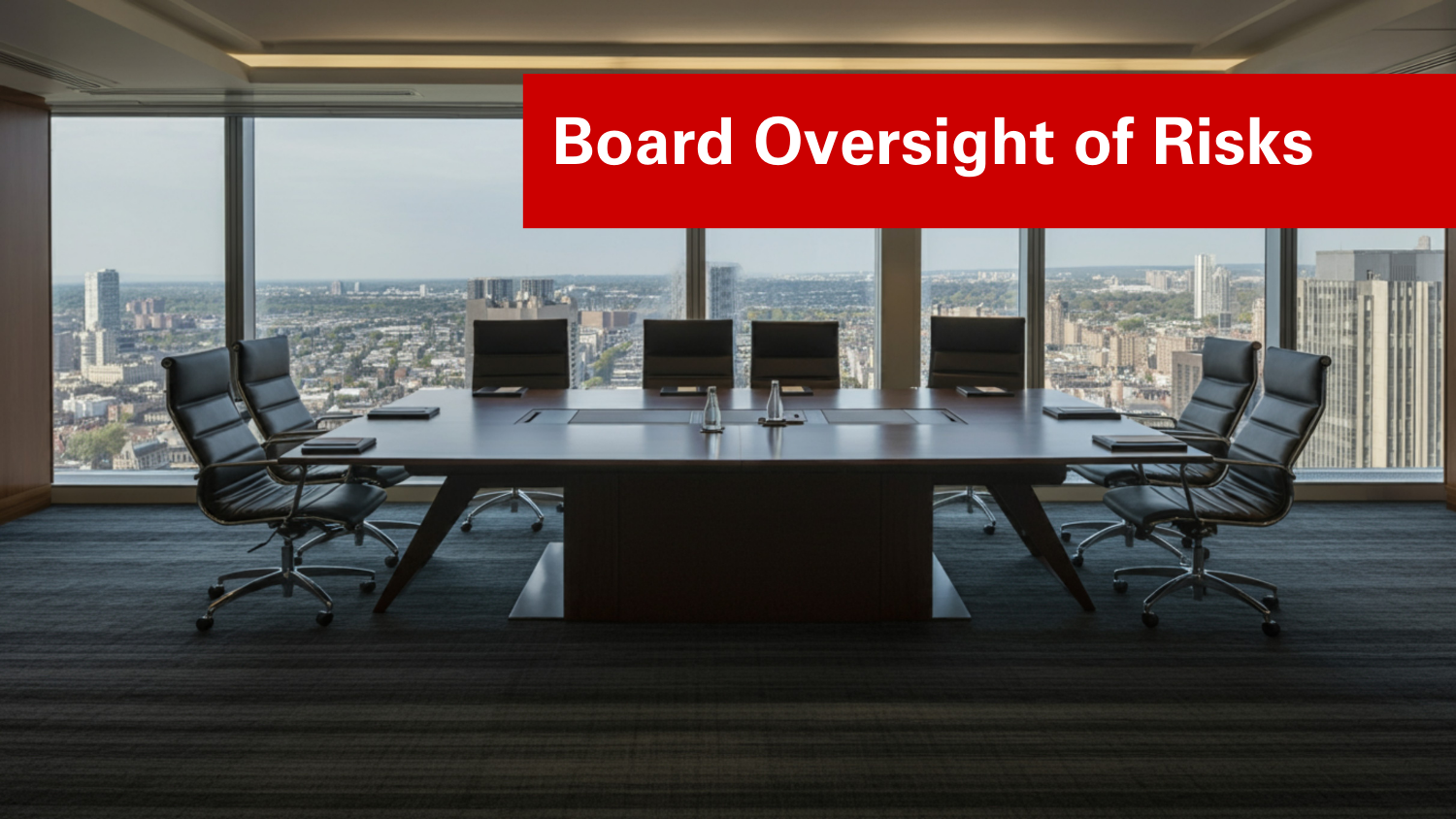Where Main Street Meets the C-Suite
This thought paper, published by What Society Thinks, summarizes results from a survey conducted by Directorship Magazine along with Deloitte , LLP and Korn/Ferry International. The goal of the survey is to obtain perspective of the thinking in the broader community, which they describe as “Main Street,” about the role and performance of boards of directors. The economic crisis has brought on changes to the responsibilities of boards of directors, as well as influenced community perceptions of board and c-suite management. The apparent failure of risk management, particularly with respect to our nation’s financial institutions, has caused the media to shed a negative light on directors and corporate senior management.
The survey covered five main topics listed as follows:
- Board duties and compensation
- Board responsibilities
- Opinion of boards of directors and CEOs
- The economic crisis
- Director and CEO compensation
A range of questions was asked regarding the five topics including, but not limited to, the fairness of CEO and board compensation, the party most responsible for the economic crisis, the separation of the role of the chairman and the CEO, and whether or not the media’s criticism of boards of directors and CEOs was fair. The main goal of the survey was to determine how the community viewed boards of directors and senior level management. Most of the respondents were from “Main Street”, which the survey described as the general public; however, boards of directors, C-suite management, academic faculty, journalists, analysts, and policy-makers were also surveyed. While the survey sought to understand the public opinion of boards of directors, researchers also needed to know how well society actually understood the board’s role and level of responsibility for corporate policies. Respondents were questioned about board involvement in the corporation’s decisions as well as how many hours he or she should work and how much he or she should be paid.
About 43% of respondents rated director credibility as “poor” or “adequate”, which was not surprising considering the current state of the economy. Interestingly, the research showed that 100% of academics rated director credibility as “poor” or “adequate”. Researchers viewed this as a major concern because if academia does not think positively of board or CEO credibility, young professionals will be dramatically impacted during their educational experience. Researchers concluded that academics should be explaining the role of directors and helping students to understand their involvement.
Only around 15-20% of all respondents, including directors and CEOs themselves, had “good” opinions of directors and CEOs. The survey showed that directors and CEOs scored themselves harshly when questioned about their own credibility and competence. Fewer than half of the directors rated themselves “good” and 80% of CEOs rated themselves as “poor” or “adequate.”
Throughout the remainder of the survey, similar responses were received. The research from the survey suggested that boards of directors need to extend greater efforts towards addressing the well-being of their employees, seeing that over 45% of respondents disagreed that boards of directors were concerned with employee satisfaction.
An important observation made by Steve Madar, the vice chairman of Korn/Ferry, was that “everyone, and especially directors, should join in the fight to shape public opinion rather than allow it to be shaped for them”. The survey found that most people are unfamiliar with director responsibilities and compensation. If director responsibilities and compensation were more widely known, it might aid to shaping a public image, as Madar pointed out. Although most respondents seemed to be familiar with board duties, 76% noted they were unaware of the amount of time or level of influence directors had over management.
The survey also suggested that respondents believe organizations should split the role of the chairman of the board and the CEO. In total, 86% of the respondents agreed that the chairman and the CEO should not be allowed to share roles. With slightly less percentages, directors and CEOs agreed the roles should be split as well.
When asked who was responsible for the current economic crisis, respondents indicated that bankers, regulators, politicians, and mortgage borrowers held the most responsibility. However, the majority of respondents agreed that executive teams and CEOs should be held most responsible for the economic recovery. Respondents also agreed with most media released on CEOs and directors regarding their criticism during the tough economic times. In addition, CEOs and directors themselves agreed (62-70%) that their criticism from the media was fair.
The last topic covered by the survey was the level of compensation related to CEOs’ motivations to perform well. Seventy-three percent of respondents believed that the main motivator for CEOs was their executive compensation. A little over three-fourths of respondents agreed that this compensation was in excess of what most CEOs deserved for their responsibilities. Almost a majority of respondents (49%) agreed that boards of directors were adequately paid. Ninety-four percent of respondents believed that CEOs’ compensation should be linked to company performance. It is also important to recognize that respondents agreed that employees were well-underpaid compared to the CEO.
In the future, the researchers stated that negative opinions would most likely dissolve over time and the public opinions of corporate officials would return to its previous state. When recovery takes place and people forget about the pain of the economic strife, negative opinions should decrease. The survey’s results concluded that some remedies to consider in moves toward economic recovery and a more positive public opinion of directors and CEOs might include the following:
- Establishing best practices for board processes,
- Making sure board compensation is perfectly attuned to the company’s strategic needs,
- Firm willingness to work as hard as the new director role will require,
- Communicating to lower ranks of management, employees, and investors,
- Finding ways to make their work known to the Main Street public
In conclusion, research shows the public opinion of board director and CEO credibility is at a low and needs to be improved with the help of directors and CEOs themselves, academia, journalists, and economists in order to re-establish investor confidence in the corporate sector for long-term reputational benefit.
Original Article Source: “Where Main Street Meets the C-Suite”, Directorship Magazine, 2009


